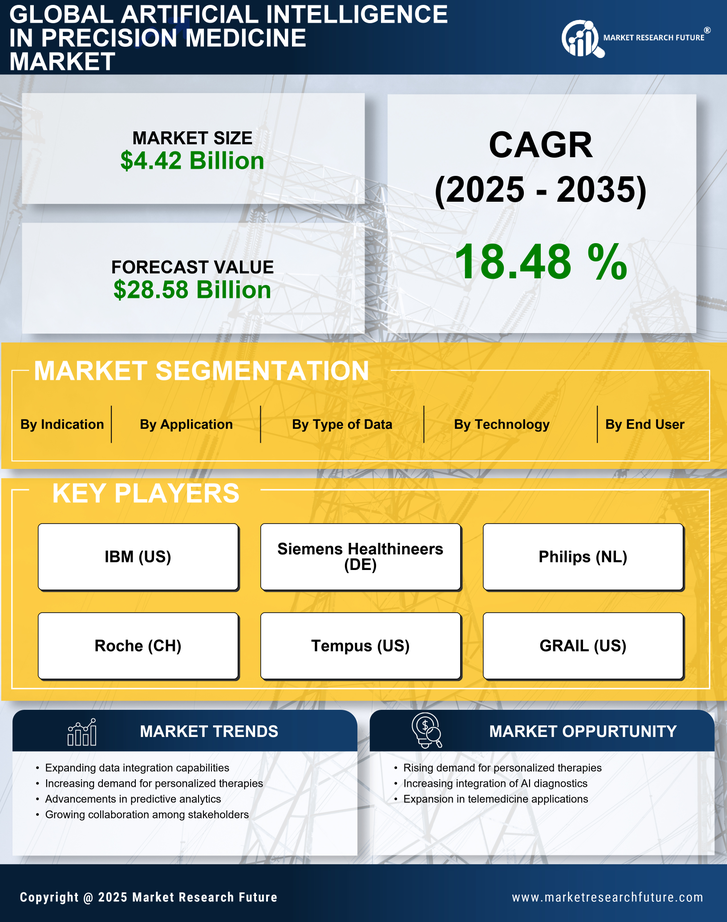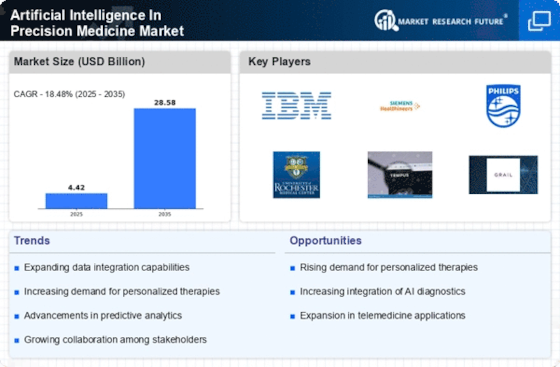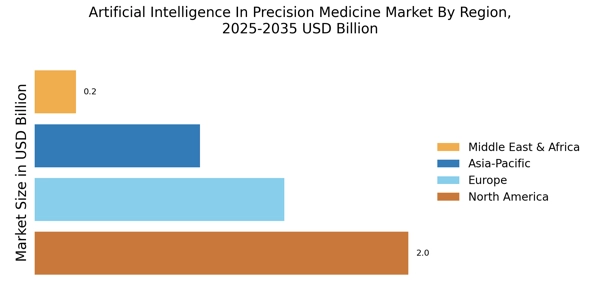Enhanced Data Analytics
The integration of advanced data analytics within the Artificial Intelligence In Precision Medicine Market is transforming how healthcare providers interpret complex datasets. By leveraging machine learning algorithms, practitioners can analyze vast amounts of patient data, leading to more accurate diagnoses and treatment plans. This capability is particularly crucial as the volume of healthcare data continues to grow exponentially. According to recent estimates, the healthcare data generated annually is expected to reach 2,314 exabytes by 2025. This surge necessitates sophisticated analytical tools, which AI provides, thereby enhancing the overall efficacy of precision medicine. As a result, healthcare organizations are increasingly investing in AI-driven analytics to improve patient outcomes and streamline operations.
Improved Patient Engagement
Patient engagement is a critical component of successful healthcare delivery, and the Artificial Intelligence In Precision Medicine Market is enhancing this aspect significantly. AI-driven tools, such as chatbots and personalized health apps, facilitate better communication between patients and healthcare providers. These technologies empower patients to take an active role in their treatment plans, leading to improved adherence and satisfaction. Research suggests that engaged patients are more likely to follow prescribed therapies, which can lead to better health outcomes. As healthcare systems increasingly recognize the importance of patient engagement, the demand for AI solutions that foster this interaction is expected to rise, further driving the precision medicine market.
Cost Reduction in Healthcare
The Artificial Intelligence In Precision Medicine Market is poised to drive significant cost reductions in healthcare delivery. By automating routine tasks and optimizing resource allocation, AI technologies can minimize operational expenses. For instance, AI algorithms can predict patient admissions and optimize staffing, which can lead to a reduction in unnecessary hospitalizations. A report indicates that AI applications in healthcare could save the industry up to 150 billion dollars annually by 2026. This financial incentive encourages healthcare providers to adopt AI solutions, thereby accelerating the growth of the precision medicine sector. Consequently, the focus on cost efficiency is likely to propel further investments in AI technologies.
Advancements in Genomic Research
The field of genomic research is rapidly evolving, and the Artificial Intelligence In Precision Medicine Market is at the forefront of these advancements. AI technologies are being utilized to analyze genomic data, enabling researchers to identify genetic markers associated with various diseases. This capability is crucial for developing targeted therapies that cater to individual patient profiles. The market for genomic sequencing is projected to reach 25 billion dollars by 2026, highlighting the growing importance of AI in this domain. As genomic research continues to expand, the integration of AI will likely play a pivotal role in shaping the future of precision medicine.
Integration of Wearable Technology
The rise of wearable technology is significantly influencing the Artificial Intelligence In Precision Medicine Market. Wearable devices, such as smartwatches and fitness trackers, collect real-time health data, which can be analyzed using AI algorithms. This integration allows for continuous monitoring of patients' health metrics, enabling timely interventions and personalized treatment adjustments. The wearable technology market is expected to surpass 60 billion dollars by 2025, indicating a robust demand for devices that can seamlessly integrate with AI systems. As healthcare providers increasingly adopt these technologies, the potential for improved patient outcomes through precision medicine is likely to expand.


















